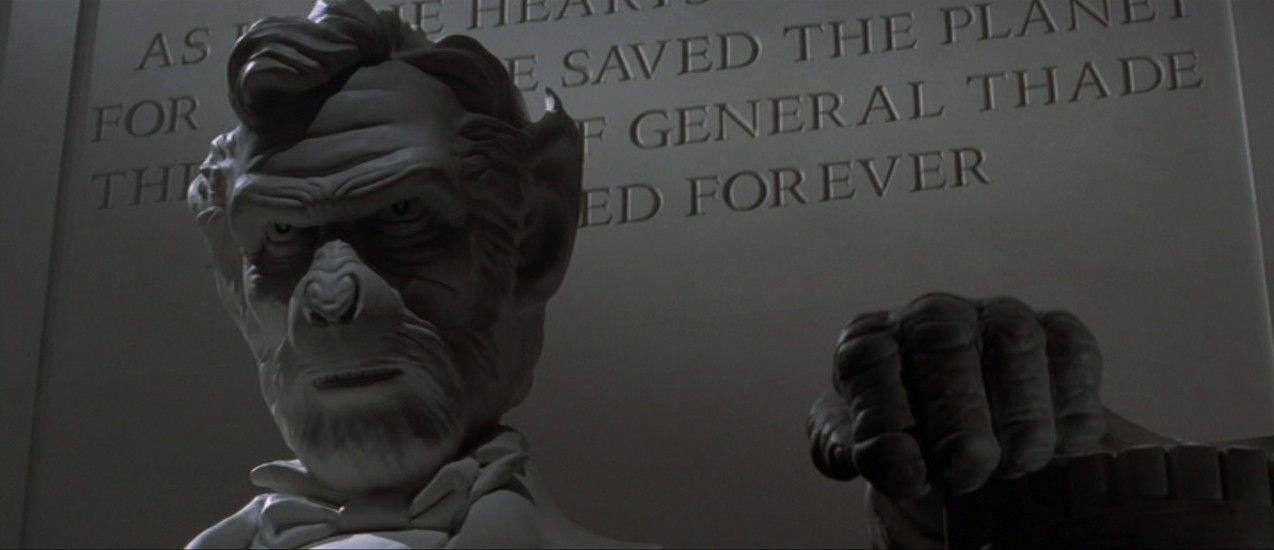The TV series really changed things, but I liked the world they established. I rationalized it in that it took place in the western part of North America while the films were in the New York area. Also, they were in a somewhat different time also.
The TV series had a few continuity errors, but from a production standpoint, it was not a coincidence that:
- series was set in California--where the last movie left off.
- Jumping ahead from the state of humanity seen in Battle's early 21st century timeline to 3085, one can see how a post-Caesar apes society still had talking humans, but his attempt to establish them as equals had long been abandoned in favor of making humans a completely subservient class. Humanity's slow decline seemed to follow a natural direction set by the new timeline.



